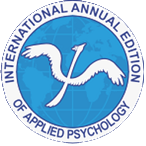The Ability to Judge and its Place in the Structure of Giftedness Viewed as a Functional System
Аннотация:
This article explores judgmental function of psyche as one of the most significant and non-compensatory cognitive factors of giftedness, which is seen as a functional system. An attempt was made to prove that creative and intellectual success of a gifted person is highly determined by his or her ability to effectively solve problem of antinomy of judgment itself, which exists in the discrepancy between cognition of objective valuable features of an object, and subjective judgment – attribution – of valuable features of an object. A key role in solution of this problem belongs to an individualized for each person set of judgmental basis, which highest level of formation is known as an ideal etalon. Considering this, we suggest seeing a gifted person also as an active carrier of “ideal etalons”. A thesis is proposed, according to which a creative activity of a gifted person is nothing but “work with an ideal”, which is an individualized, unique explication of an ideal to the external world with the help of means available to an individual.
1. Shadrikov V.D. Problemy professionalnyh sposobnostey [Problems of professional abilities]. Psikhologicheskiy zhurnal (The psychological magazine). 1982, vol. 3, no. 5, pp. 13-26.
2. Teplov B.M. Problemyi individualnyih razlichiy. [Problems of individual differences]. Moscow, 1961. 536 p.
3. Anokhin P.K. Uzlovyie voprosyi teorii funktsionalnoy sistemyi. [Central questions of the theory of functional systems]. Moscow, 1980. 197 p.
4. Baturin N. A. Problema otsenivaniya i otsenki v obschey psihologii. [The problem of assessment and judgment in general psychology]. Voprosy psikhologii (Issues of psychology). 1989, no. 2, pp. 81-89.
5. Baturin N.A. Otsenochnaya funktsiya psikhiki [Judgmental function of psyche]: dis. … Dr. psychol. Sciences,. St-Petersbur State University, 1998.
6. Matyushkin A.M. Kontseptsiya tvorcheskoy odarennosti [Сoncept of creative giftedness]. Voprosy psikhologii (Issues of psychology). 1989, no. 6, pp. 29-33.
7. Odarennyie deti [Gifted children]. Moscow, 1991. 348 p.
8. Kholodnaya M.A. Psihologicheskie mekhanizmy intellektualnoy odarennosti [Psychological mechanisms of intellectual giftedness]. Voprosy psikhologii (Issues of psychology). 1993, no.1, рр. 32-39.
9. Leytes N.S. Vozrastnaya odarennost shkolnikov [Giftedness of students: the aspect of age]. Moscow, 2001. 320 р.
10. Gilford Dzh. Tri storony intellekta [J.P. Guilford. Three components of intelligence]. Psikhologiya myshleniya (Psychology of thinking). Moscow, 1965, рр. 433-456.
11. Druzhinin V.N. Psikhologiya obschih sposobnostey [Psychology of general abilities]. St-Petersburg, 2008. 318 p.
12. Zhigalko S.V. Ponyatie “Critical Reading” pri formirovanii navykov chteniya u buduschih inzhenerov-pedagogov [The concept of “Critical Reading” in the formation of reading habits in the future engineers-educators]. URL: http://repo.uipa.edu.ua/jspui/bitstream/123456789/1886/3/S.Zhygalko_37.pdf (Accessed: 02.01.2014)
13. Korsukova E. Istina i zabluzhdeniya [Truth and error]. URL: http://www.0zd.ru/filosofiya/istina_i_zabluzhd (Accessed: 02.01.2014).
14. Volkenshteyn M.V. Krasota nauki (Beauty of science). Nauka i zhizn (Science and Life). 1988, no. 9, pp. 15-19.

